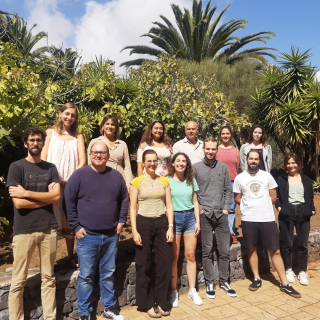Bibcode
Margalef-Bentabol, Berta; Huertas-Company, Marc; Charnock, Tom; Margalef-Bentabol, Carla; Bernardi, Mariangela; Dubois, Yohan; Storey-Fisher, Kate; Zanisi, Lorenzo
Referencia bibliográfica
Monthly Notices of the Royal Astronomical Society
Fecha de publicación:
6
2020
Número de citas
47
Número de citas referidas
39
Descripción
With the advent of future big-data surveys, automated tools for unsupervised discovery are becoming ever more necessary. In this work, we explore the ability of deep generative networks for detecting outliers in astronomical imaging data sets. The main advantage of such generative models is that they are able to learn complex representations directly from the pixel space. Therefore, these methods enable us to look for subtle morphological deviations which are typically missed by more traditional moment-based approaches. We use a generative model to learn a representation of expected data defined by the training set and then look for deviations from the learned representation by looking for the best reconstruction of a given object. In this first proof-of-concept work, we apply our method to two different test cases. We first show that from a set of simulated galaxies, we are able to detect ${\sim}90{{\ \rm per\ cent}}$ of merging galaxies if we train our network only with a sample of isolated ones. We then explore how the presented approach can be used to compare observations and hydrodynamic simulations by identifying observed galaxies not well represented in the models. The code used in this is available at https://github.com/carlamb/astronomical-outliers-WGAN.
Proyectos relacionados

Huellas de la Formación de las Galaxias: Poblaciones estelares, Dinámica y Morfología
Bienvenida a la página web del g rupo de investigación Traces of Galaxy Formation. Somos un grupo de investigación amplio, diverso y muy activo cuyo objetivo principal es entender la formación de galaxias en el Universo de una manera lo más completa posible. Con el estudio detellado de las poblaciones estelares como bandera, estamos constantemente
Anna
Ferré Mateu